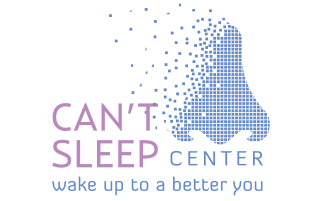Loud (and chronic) snoring is often an indication of sleep apnea, especially if it’s accompanied by the symptoms below.
You might have sleep apnea if…
- You have been told you choke, snort or stop breathing when you sleep
- You feel tired all the time
- You fall asleep unintentionally during the day
- You don’t feel rested even if you take multiple naps
- You find it difficult to concentrate and to make decisions
- You have trouble sleeping
- You wake up feeling tired
- You have excess body weight
- You’re irritable
- You have low testosterone levels and/or thyroid issues
- You wake up with a dry mouth or a sore throat
- You wake up often during the night
- You feel depressed and have no interest in social interactions
- You have severe headaches, especially in the morning
Unfortunately, the majority of these symptoms can easily be attributed to “stress” or “day-to-day life”. Don’t ignore them. If you can relate to two or more of the statements above, you should contact a certified sleep specialist.
Short answer: Everyone, including children.
Long answer: There are 9 main risk factors.
1. Male gender. Approximately 30% of men have obstructive sleep apnea compared to 20% of women.
2. Obesity. People with BMI > 30 are four times more likely to develop sleep apnea than people with normal weight. But not everyone who has sleep apnea is overweight.
3. Age. According to the American Sleep Association, people over the age of 40 are at a higher risk.
4. Smoking. It causes inflammation in your throat and reduces the space in your airway.
5. Excessive use of alcohol or sedatives. They make your neck muscles relax too much which can cause apnea.
6. Neck circumference. A large neck circumference (17” men, 16” women) increases the risk of developing sleep apnea.
7. Genetic predisposition. Some people are born with a narrow airway. Others—with large tonsils that obstruct breathing.
8. Family history. If someone in your family has OSA, you are at a higher risk.
9. Hypertension. If you have been diagnosed with hypertension (high blood pressure), you’re very likely to develop obstructive sleep apnea.
How to get tested
You might just be snoring or you might have sleep apnea.The only way to know for sure is to do a sleep study. If you have heard of this type of test, you probably think it means sleeping in a hospital with someone watching you. This can be depressing and even scary! Fortunately, today, you can test for sleep apnea in the comfort of your own bed. Sleep Apnea Center can provide you with the latest technology for a home sleep study. The device is very small and you won’t even notice it’s there. You turn it on, let it record your vital signs and bring it to us on the next day. That’s all!
